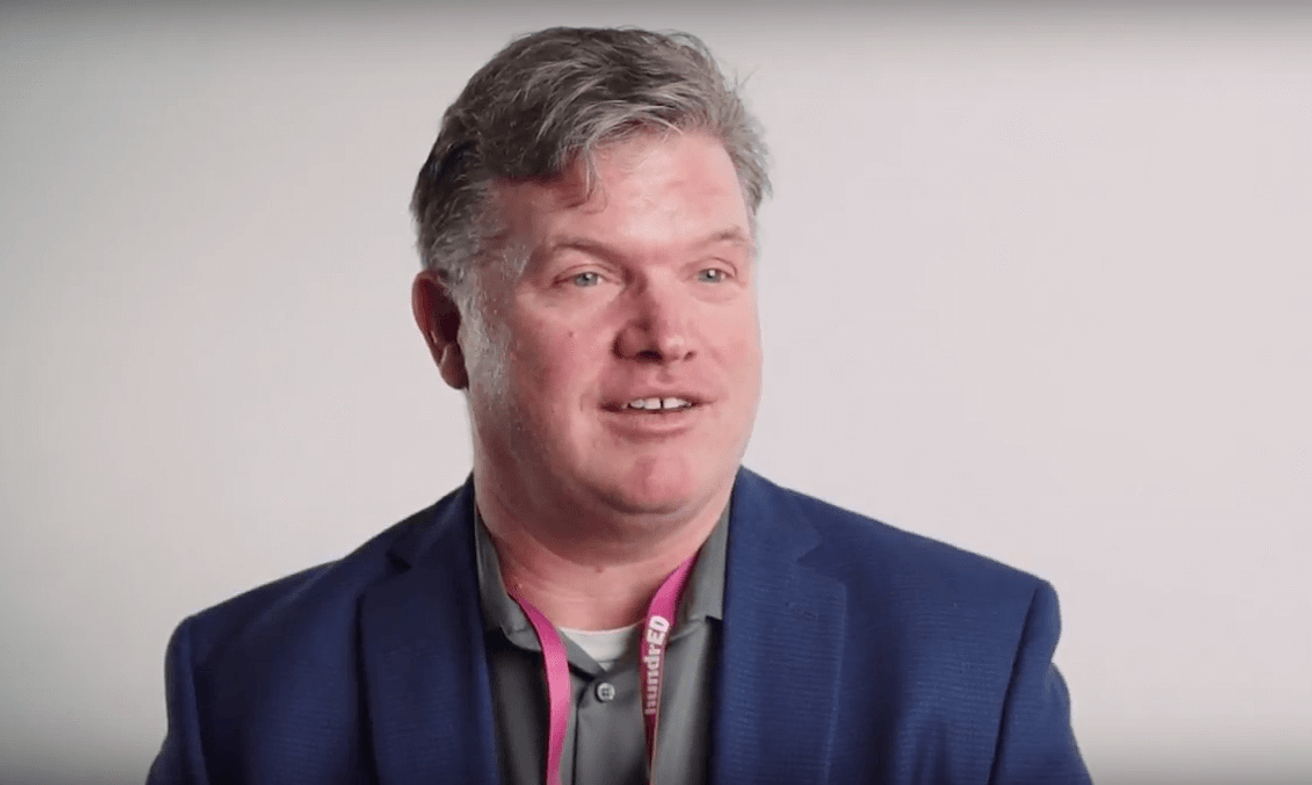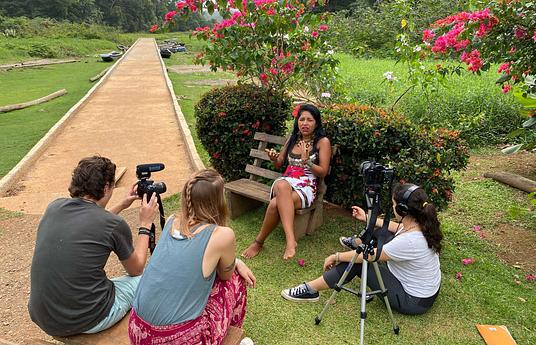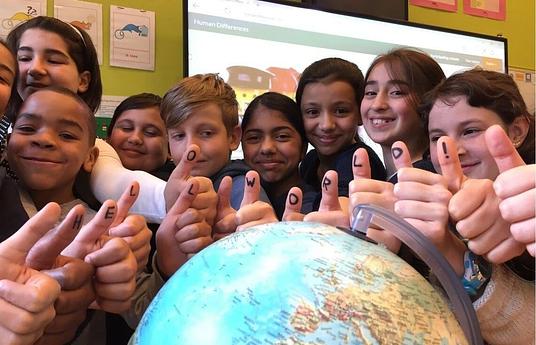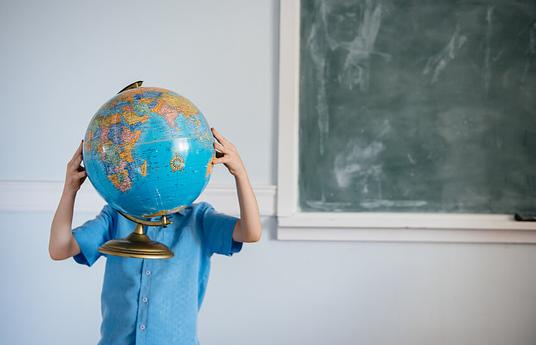James Steckart is the Head of School for THINK Global School, a travelling boarding school that believes learning shouldn't be confined to four walls. The school turns the whole world into a classroom, visiting 4 different countries each year, and focuses on teaching students how to think, not what to think.
How does Project Based Learning improve the learning experience?
Globally, I think Project Based Learning (PBL) is kind of catching on. When I started 20 or 25 years ago PBL was a really new concept, you really had to sell it to people. Now most parents have heard of the word, whether they understand it completely is different, but they've definitely heard of it, so it’s not so out there anymore. It’s really an old pedagogy in the sense that its been around since the 30s but how have we seen it happen in real life? For example, when I first started we were in Greece and we combined humanities, arts and English together and they wanted to teach The Odyssey, in the middle of the Aegean, tracing the pathway. When you’re able to do that, that book comes alive, when you go to the Cave of the Nymphs and do those kinds of things. When you’re talking about indigenous cultures and the entire school backpacks through the Inca Trail - there are 60,000 kilometres of trails in Peru and Latin America, left by that civilisation - those things come to life. It’s not like I’m looking at a cool picture in a book or watching a video and I think so much of our schooling for kids is so isolated, they’re so disconnected from the real world that they read about the stuff but they don’t actually experience it. And while you might not be able to go to Machu Picchu, there’s no reason why you can’t explore your own neighbourhood or your own community, get outside of your four walls.
How can uncontrolled learning environments and travel experiences benefit learning?
I don’t know who said the famous quote, but I always tell my first year teachers that control is an illusion in the classroom, the more you try to grasp it or control it, the more control goes away from you. I think there’s a problem in education that we don’t trust kids in general, that we think they won’t do anything if they’re not told to do something. Personally, I don’t have that issue, I really think kids can learn a lot without us as teachers as long as we give them really good, safe environments to work in, we give them really good resources and we teach them how to learn as opposed to what to learn. For us at THINK Global School, we give up a lot of control to the students. 40% of the curriculum is student designed, which means they propose the idea, they come up with the solutions and it’s not out of a book or a canned curriculum. I do think that is one of the major problems, that there’s this idea that everybody should learn X, Y and Z, where in reality people learn what they need to learn because they’re interested in it. I could talk about the team here right in this room, they’re probably experts in sound and photography, that I will probably never be an expert in, because that’s just not by passion, but it’s their passion so they’re experts at it. So, I think if we give autonomy and choice and we trust kids, they’re going to learn some amazing things that really surprise us, as opposed to being limited by our definition of what should be learned.
How do we do that at a travelling school? Now that takes it to a whole new level, because we don’t have a place with four walls and we haven’t invested a lot of money in infrastructure. There’s really not a necessity for us to look like we’re learning in a classroom situation. Learning for us in Botswana was for 8 weeks, part of the time was in a range rover, tracking elephants, lions and leopards and all different animals; part of the time was in the camp with researchers, crunching the data and modelling wildlife populations. Those are the opportunities you have when you don’t think ‘oh I need to be in the classroom’ or ‘we have this amazing library, why is nobody using this building’. You get anchored by what you’ve created and when you don’t have much and you travel really lightly you have to take opportunities to learn everywhere you go. So our classroom never looks the same. In Peru, our classroom was in a resort and most of our classes were outside overlooking the Sacred Valley. In Botswana we were in tents, in Vancouver we rented out a makerspace that wasn’t being used in the morning, 80,000 square feet of makerspace. We were like ‘that’s the place where we want to work!’. They had laser cutters laser printers and all those kinds of things.
So, you really have to bust open what you define as a classroom space, especially as a travelling boarding school - but anyone could do this in their communities.
What is the biggest challenge in education right now?
HundrED is showing that actually there are a lot of really cool innovations happening out there, but they’re very spotted and there’s not a lot of coordinated communication about them. PBL, which is what our school does as its primary pedagogy, has been around for years, it’s not a new concept, it’s just being done in maybe a slightly amped up way as a travelling boarding school. What happens is we see so much negativity about schools that the good stuff that we actually do worldwide, and there’s a lot of really good stuff happening worldwide, is lost in that way. So we tend to focus on really negative things as opposed to really positive things, I think that’s a stumbling block for schools to change and adapt. I’m slightly intrigued about where technology is going to take us and how our relationship with work as a species, as a society is going to change over time, and I really don't think that schools are remotely even tipping the iceberg of when that transition is going to happen. I think that transition is going to happen sooner rather than later.
The next 100 years of education should…
The next 100 years of education should really take advantage of the uniqueness of human connections. We’re going to lose a lot towards technology, but if we maintain the human connectivity between teachers, students and the community then I think it will be a positive 100 years. If we lose the humanity in education through technology, then I think we’re going to be worse off.



